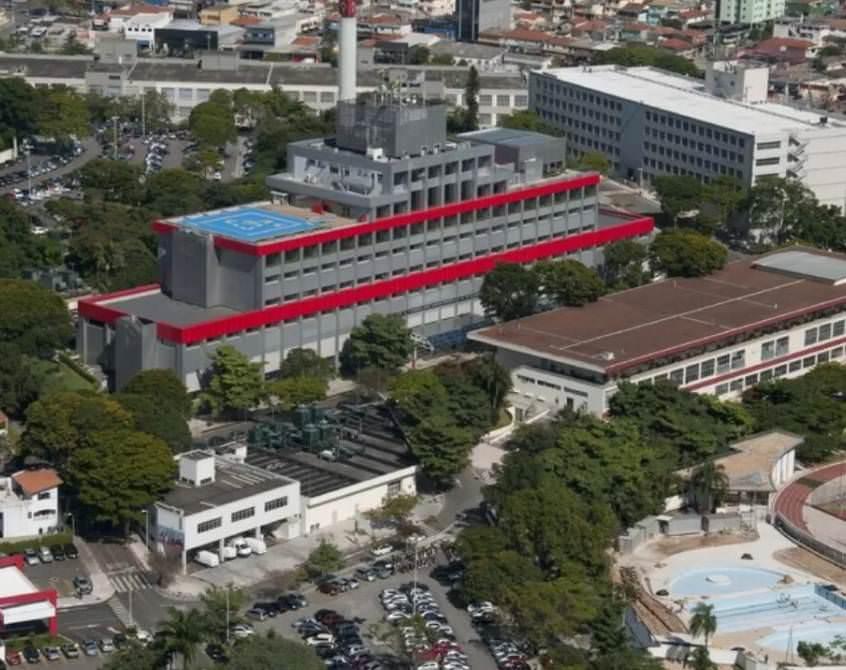A Visionnaire program trained more than 30 people in mobile application development for the iOS platform
Client
Area
Summarized Problem
Summarized Solution
Results
All 15 students were hired by Visionnaire and Bradesco, with thirteen of them working
on specific projects for the financial institution. The program's goal was to have the best candidates working for Bradesco
after a period. As a result, a significant portion of these 13 students was hired by Bradesco, and many of them continued
their careers with the institution. The success of the program led to its repetition in 2022.
Technologies
Xcode is Apple's official Integrated Development Environment (IDE). It provides a
comprehensive set of tools for creating, debugging, and deploying applications for Apple's systems. Xcode includes a code
editor, debugger, and iOS device simulator, among other useful tools.
Interface Builder is a tool within Xcode that allows developers to create user interfaces
for iOS and macOS apps using a visual approach. It enables developers to drag and drop interface elements, configure their
properties, and connect them to Swift code.
Cocoa Touch is a set of libraries and frameworks provided by Apple for iOS app development.
It includes essential frameworks like UIKit, which offers a variety of user interface components such as buttons, tables,
views, and input controls.
SwiftUI is a user interface framework introduced by Apple in 2019. It allows developers
to create declarative and responsive user interfaces for iOS, macOS, watchOS, and tvOS apps. SwiftUI simplifies app development
with a simple and intuitive syntax.
Core Data is a data management framework provided by Apple. It allows developers to
store, retrieve, and manipulate data in iOS and macOS apps. Core Data offers features such as persistence, searching, undo/redo,
and versioning support.
CloudKit is an Apple Backend-as-a-Service (BaaS) that enables developers to store
and sync app data in the cloud. It provides features for user authentication, data storage, file sharing, push notifications,
and more.
ARKit is an Augmented Reality (AR) framework that allows developers to create immersive
AR experiences on iOS and iPadOS devices. It provides features for position and orientation tracking, surface detection, virtual
object rendering, and interaction with the real environment.
HealthKit is a framework that allows apps to access and share health and fitness data
on iOS and watchOS. It enables developers to collect sensor data, access user health information, and provide health and fitness-related
features.
The iOS Training Program covered all the major Apple technologies during the course
modules, from basic to advanced aspects.
Detailed Problem
The rapid evolution of technologies necessitates constant skill updates, making it
challenging to maintain a workforce in pace with the advancements. Moreover, fierce competition among companies for technical
talent has led to a shortage of experienced and skilled professionals. In summary, the increasing demand for software developers
and IT professionals in recent years has been affected by rapid technological transformation and the difficulty of keeping
up with market needs, resulting in a significant talent shortage. In the case of iOS development, this shortage is particularly
noticeable due to the relatively higher cost of Apple devices.
This was the scenario encountered by Scopus Desenvolvimento de Sistemas (Scopus Systems
Development), part of Grupo Bradesco (Bradesco Group), in 2018. Both companies recognized the lack of qualified professionals
for iOS app development and needed to find a solution.
Detailed Solution
Held in Curitiba, the capital of Paraná, Brazil, the iOS Training Program was
free for participants and open to all interested PUCPR students, as well as students from other universities and non-students
already employed. The initiative focused on providing training in iOS app development, specifically in Swift.
A selection process conducted by PUCPR determined the participants, prioritizing candidates
with daytime availability, considering the program's employability goal. The process consisted of an initial test followed
by interviews. During the initial selection, PUCPR suggested the best schedule for the program, taking into account the availability
of most candidates.
The program was divided into five modules: Swift/Objective-C Introduction (30 hours),
Basic iOS (40 hours), Advanced iOS (40 hours), Final Project (60 hours), and Corporate Environment Work (20 hours). The classes
were taught at PUCPR by experienced iOS teachers. Students received certificates issued by PUCPR upon completing each module.
Brochure![]()
Presentation![]()





